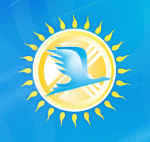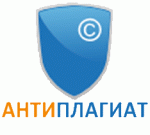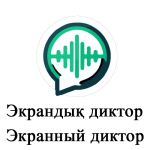Dissertation council
Информация о докторантах
|
|
|
Защита 2021 г.
|
Защита 03,04 декабря 2020 г.
|
Защита 22,23 июня 2020 г.Защита - Е.Ставбуник скачать видео фаил
Защита - Ж.Шугаипова скачать видео фаил
Защита - Мирас Құттыбай скачать видео фаил
|
Our coach






STUDENT LIFE
Student life in university is very interesting and varied!
Student life in university is very interesting and varied!
There are different artistic collectives:
- Choreographic ensembles “Zhaina”, “Ayala”. Children’s dance ensemble “Ayala” and teenage choreographic ensemble “Zhaina” are multiple laureates of republican creative competitions and international festivals in Republic of Belarus, Russia, Spain, Turkey, Egypt, Germany;
- Ethnographic theater and museum of national costume. Students take part in scientific researches and find information about national costumes, make designs of Kazakh national costumes. Then they represent them taking part in international competitions. The theater and museum invite research workers, designers and models.
- Theater of fashion and studio of artistic styling. Students styling modern young people's collections of clothes, pursue decorative and ornamental art (embroidery, painting clothes using the technique of batic ).
- Vocal studio “Melody” where students can realize their vocal potential.
- Comedy clubs where students taking part in competitions and show their sense of humor and keenness of wit. Comedy club of Karaganda economic university is the multiple champion of the region.
- Vocal and instrumental ensemble, in which students take part as musicians, arranger and composer.
- Literary club where students visit literary evenings dedicated to famous Kazakh and foreign writers and poets. This club holds theme book exhibitions.
- Ethnographic ensemble of national instruments where students play different Kazakh national instruments: dombra (Kazakh stringed folk instrument), kobyz, sherter and others.
- Student Theater “Inspiration”. All students who have theatrical ability and passion for dramatic identification take part in it.
- Debate club “Birlik” (“Unity”) – is the place where student debate with each other about actual problems of public development.
- Center of culture and moral development hold activities in promoting values of domestic and foreign culture, the best samples of folk, classic and modern art.
Аlso we have a lot of associations:
- Alliance of students;
- Youth Center “Lider of XXI century”;
- “Choise of young generation” of Karaganda region;
- Public and politic movement “Kaisar” of Karaganda region;
- Karaganda Comedy Club;
- Football team “Saryarka” in city of Karaganda;
- The youth wing “Nur Otan”.
Guests of the university are national culture centers, representatives of "Little Assembly" of nations of Kazakhstan.
The university organizes a lot of sport competitions and Olympics. Student take part in different interacademic, municipal and republican sport competitions.
University has Youth activity Committee which manages student youth policy of the university and diversify student life.
EDUCATIONAL PROCESS
Since 2004 at the university functions credit system of training.
The total duration of the academic year is on all areas of training not less than 30 weeks, with 2 semesters of 15 weeks.
The total duration of vacations is 7 weeks.
Practice - 6 weeks.
The sequence of the learning process is described in the academic calendar of the University.
Each program includes 128 credits, 36-38 credits for each year. Each training program consists of compulsory subjects and disciplines of your choice.
The university operates office of Register - Student support services concerned with recording the history of academic achievements and the registration of elective disciplines.
Registration for elective disciplines
Determining the choice of subjects is carried out under the guidance of Advisor. Advisor by the presentation offers students an alternative to each discipline from the list of elective courses, advises in determining the sequence of the study subjects.
Choosing discipline, the student forms his/her individual curriculum.
Individual training plan is drawn up for each year of training.
On the basis of individual training plans are formed academic groups and streams.
If a student is not registered for elective disciplines, the basis for his teaching was adopted core curricula drawn up for this course.
The student also has the right to choose the candidate of teachers of compulsory subjects. Teacher candidates’ choosing makes by order of registration priority.
The preferential rights to choose candidates have excellent teachers’ successful students.
Your’ schoolmaster – tutor and advisor
Each of the university students has two schoolmasters – tutor and advisor.
Tutor carry outs educational-training work, makes more closely contact between university administration, public organizations, university’s academic staff and group students.
Advisor is a teacher, who helps to choose individual education trajectory and development of programs during the training period.
Monitoringandevaluationofknowledge
Monitoring complex and evaluations of student’s knowledge intend to carry out operating, landmark, final control and final state attestation.
By the all types of control grade for each disciplines sets on-scale a lot of scoring alphabetic system of evaluation of knowledge
Operating control is a systematic evaluation of the student’s knowledge, which is carrying out by the teacher in classes.
Landmark (rating) control of student’s knowledge- carries out on each discipline twice – the first and second rating accordingly on 8th and 15th weeks during the semester.
The final control of students’ knowledge. It carries out during the exams.
Student can call on the results of exam.
As an indicator of student's use GPA (Grade Point Average) - the weighted average estimation of the level of educational achievements of students in the chosen specialty.
Summer semester
University organizes paid summer semester for students, who have backlogs. For remedial students-who couldn’t transfer rating, or pass academic failure during the summer semester, provided second academic year.
For what can EXPEL from university?
The violations under the Charter of the university duties, internal regulations, the violation of discipline, the university have the right to expel you from the university.
You may also be forcibly expelled from the university, if we assume 40 or more passes during the academic year without good cause and supporting documents.
About KEU
|
|
Decision of the Council of Ministers and Resolution of the Board Centrosoyuz USSR in 1966, was formed Karaganda Centrosoyuz Cooperative Institute - a specialized institution, which was entrusted with the mission of training for the system of consumer cooperatives, not only for their own republic, but also to Kyrgyzstan, Uzbekistan, Turkmenistan, Tajikistan adjacent to Kazakhstan, the Russian regions.
The idea of training specialists with higher education in the Republic of Kazakh Union of Consumer Societies was supported by the Council of Ministers of the Kazakh SSR. The Council of Ministers Decree № 215 on March 22, 1966 and the Board Centrosoyuz USSR Decree number 84 of 9 June 1966 decided to open the Karaganda cooperative institute, which began its activities on the basis of a five-story academic building-Soviet Party School of the Central Committee of the Communist Party of Kazakhstan, located in the center of Karaganda, next to the Regional Committee of the Communist Party of Kazakhstan, and transferred gratis Council of Ministers of Kazakh Consumers Unions (Ordinance of the Council of Ministers of the Kazakh SSR № 679-r dated April 29, 1966).
Institute almost became operational in the second mid-June 1966. Rector of the Institute was appointed an experienced business executive - head of the Karaganda Regional Department of Trade, the Great Patriotic War’s veteran Paul Filippovich Kotlyarov.
The building of the institute in 1966, located at 18140 m and 3223 m total usable area, where there was an auditorium for 450 people, two lecture halls for 150 people, 22 classrooms. Classroom Foundation allowed the Institute to engage in one shift.
In 1993, the university was transferred to the Kazpotrebsoyuz and transformed into the Kazakh Institute of Consumer Cooperatives. And after passing the state certification and its recommendations in 1995 Resolution of the Board Kazpotrebsoyuz from 5th of July, 1997 it was transformed into Karaganda Economical University of Kazpotrebsoyuz (KEUK).
The policy of the University:
- Continuous work on maintaining and improving the image of the university, as the consumers of educational services, and the corporate world and the state;
- Continuous improvement of all university processes according to international standard ISO 9001:2000;
- The introduction of innovations, including innovative teaching technologies;
- Formation of high information and communication culture;
- To explore the cultural heritage of Kazakhstan.
The defining feature of KEUK - its innovation, advanced character development.
KEUK has 3 dormitories, a complex of bars, a center of medical services, sanatoriums, recreation, educational and recreational facilities, and sport halls.
KEUK has a palace of culture of the students in the structure of which consists of various creative associations of the University, the universal library, multimedia classrooms, information and educational center, the center of educational television.
The University consists of five departments: Accounting and Finance, Business and Law, Economics and Management and the two absentee-distance faculty, College of Economics, Business and Law, Centre for instructional television, computer center, laboratory of innovative teaching methods; Research and Education Center, Department of personnel management department of planning, organization, monitoring and control of educational process, the department of postgraduate and further education, Center for Quality and Marketing, Publishing Center, University Museum, Library, Information and Education Center.
KEUK has 7 distance learning centers in the cities of Astana, Kustanai, Shymkent, Pavlodar, Arkalyk, Semipalatinsk and Kyzylorda.
There are 17 chairs at the university. Teaching staff is 400 persons, from them - 22 professors, doctors of sciences and 168 candidates of sciences, senior lecturers. The number of enrolled students is 3500 and about 5 thousand students on distant learning courses.
KEUK is a member of Magna Charta Universitatum, signed it in September 2006. In 2008 the University entered into the International Association of Universities (IAU).
KEUK has a certified quality management system IQNet.
Karaganda Economical University Kazpotrebsoyuz is a specialized economic institution, which trains specialists, knowledgeable in the field of market relations, management and marketing, business and entrepreneurship, accounting and auditing, international economic relations, the legal regulation of economic activity, economic customs.
The university has a multi-level system of education: pre-university - Senior High School - College of Economics, Business and Law undergraduate bachelor's degree, postgraduate - Master's Degree, Post Graduate, Ph.D., the Council for the Protection of doctoral and master's theses.
During 2007-2008 published 25 monographs, 106 units of textbooks and teaching aids, 3 textbooks with a signature stamp of the Ministry of Education and Science of the Republic of Kazakhstan.
There is a post-graduate and doctoral study in three fields: "Economic Theory, Finance, credit and circulation" and "Economics and management of the economy. Since 2005, operates a doctoral dissertation council on the specialty 08.00.01 "Economic Theory", 08.00.05 "Economics and management of the economy (in the fields and spheres), 08.00.10" Financial, credit and circulation. For 5 years the Council's work of graduate students and applicants of the University protected 52 dissertations. In its work involved a number of scientists from the economic institutions of the CIS countries: from Moscow, Novosibirsk, Poltava and Samarkand.
In 2005 KEUK registered its quality management system.
In 2009 the University successfully passed the institutional accreditation, certification in 2010 the Ministry of Education and Science of the Republic of Kazakhstan.
The university regularly hosts international academic conferences, inviting scientists from Kazakhstan, Russia, Ukraine, Uzbekistan, and Belarus.
University publishes its scientific journal “KEU’s Bulletin”.
KEUK currently implemented case and the network of distance learning technologies, is a leader in Kazakhstan on implementation of credit and distance learning technologies in the humanities (MES Order № 441 of July 22, 2008) and included in the list of basic education institutions in priority areas of higher and postgraduate education MES.
KEUK concluded 26 agreements on economic cooperation with leading universities of the CIS and the world, including with the Peoples' Friendship University of Russia (Moscow, Russia) State University - High School of Economics (Moscow, Russia), St. John's University (New York, USA), University of Regensburg (Germany), University of Trento (Italy), etc.
The university is working on four international grants TASIS and TEMPUS quality assurance study on the project "Creating a new curriculum on the theory of international trade and econometrics," university-Business ", ”Education and profession”. In the framework of international grant was organized regional training seminar with the participation of employers in Karaganda region.
As the presidential program "Bolashak" 5 university students studying abroad, three teachers are holders of the title "Best teacher of the year, 6 students have scholarships of the President of Kazakhstan. According to the rating conducted by the Independent Kazakhstan Quality Assurance Agency for Education (IKQAAE), our university is among 60 leading universities of Kazakhstan and won 16th, and the humanitarian and economic area - 4th place.
In KEUK created a model of electron-innovative university. Electronic University is also distance learning university.
Currently, the university conducted the following activities:
1. Completion megaproject "Building an e-university";
2.Creating educational innovation center "Electronic Tax Committee" together with the Tax Committee of the Karaganda region;
3. A virtual enterprise (Kazakh and Russian version);
4. Information and Education Center;
5. Formation of new doctoral (PhD) programs in economics;
6. Pre Masters Program PFUR and HSE in the project "Double diploma education";
7. Development of remote-credit technology courses;
8. Creating an educational portal;
Jurisprudence: legal regulation in the field of economics
Center for Multilingual Education

Learning foreign languages is the key to new opportunities and rich cultural experiences. Join our courses in state and foreign languages, as well as preparation courses for master’s programs and IELTS, to broaden your horizons, build confidence in communication, and open doors to new prospects. Don’t miss the chance to take a step towards your future—enroll in the courses through Google Forms!
Link: https://forms.gle/kmo2m84vZqsAkYd58
CirculEC Press Release
09/07/2025 CirculEC Training Week — A Course for Stakeholders of the Karaganda Region on Sustainable Development and Circular Economy
08/05/2025 Certificate Awarding Ceremony for Participants of CirculEC Trainings
23/04/2025 Presentation of the Erasmus+ Project at Karaganda University of Kazpotrebsoyuz
28/02/2025 Information Day on Circular Economy: Outcomes and Prospects
21/02/2025 Trainings for enhancing teaching staff capacity for CA partners
21/02/2025 Trainings for enhancing teaching staff capacity for Central Asia partners
26/12/2024 A Sustainable Future: How the Region is Preparing Specialists for the Circular Economy
26/12/2024 Invitation letter for companies to attend a validation workshop
27/11/2024 CirculEC: Sustainable Development on the Agenda
01/10/2024 Pathways to Sustainable Development: The Role of Higher Education and Stakeholders in Central Asia
25/09/2024 Economy of the Future: Information Day on the CirculEC Project
29/04/2024 Federico II: bridges to Central Asia with CirculEC
The partnership with Kazakhstan, Tajikistan, Turkmenistan and Uzbekistan universities has been strengthened in the name of sustainable development.
29/04/2024 First real meeting in the European-Central Asian EU project “CirculEC”
(Circular Value Creation and Circular Economy at Universities)
25-26/04/2024 Visit of the delegation to the University of Santiago de Compostela
08/04/2024 Newsletter Announcement
08/04/2024 "International Workshop Series to Foster Circular Economy Education Across Europe and Central Asia"
CirculEC project documents
| 478 Кб | |
| 1756 Кб | |
| 4432 Кб | |
| 126 Кб | |
| 1079 Кб | |
| 512 Кб | |
| 185 Кб | |
| 348 Кб | |
| 346 Кб | |
| 359 Кб | |
| 712 Кб | |
| 319 Кб | |
| 696 Кб | |
| 385 Кб | |
| 397 Кб | |
| 157 Кб | |
| 789 Кб | |
| 839 Кб |
Circles Partner Universities
East Kazakhstan Technical University named after. D. Serikbaeva (Kazakhstan) https://www.ektu.kz/?lang=ru
Kokshetau University named after. Sh. Ualikhanov (Kazakhstan) https://www.shokan.edu.kz/ru/
Turkmen State Institute of Economics and Management (Turkmenistan) https://tsiem.edu.tm/ru/about-us/
Technological University of Tajikistan (Tajikistan) https://tut.tj/?page_id=1742&lang=ru
Alikhan University Bokeikhana (Kazakhstan) https://abu.edu.kz/
Westminster International University (Uzbekistan) https://www.wiut.uz/parents-rus
Tajik State University of Commerce (Tajikistan)
Central Asian University (Uzbekistan) https://caiu.edu.kz/
Turkmen State Financial Institute (Turkmenistan) http://tdmai.edu.tm/rus/index.html
Academy of Sciences of Turkmenistan (Turkmenistan) https://science.gov.tm/
University of Santiago de Compostela (Spain) https://www.usc.gal/en
University of Naples Federico II (Italy) https://www.international.unina.it/
University of Applied Sciences Bielefeld (Germany) https://www.hsbi.de/







